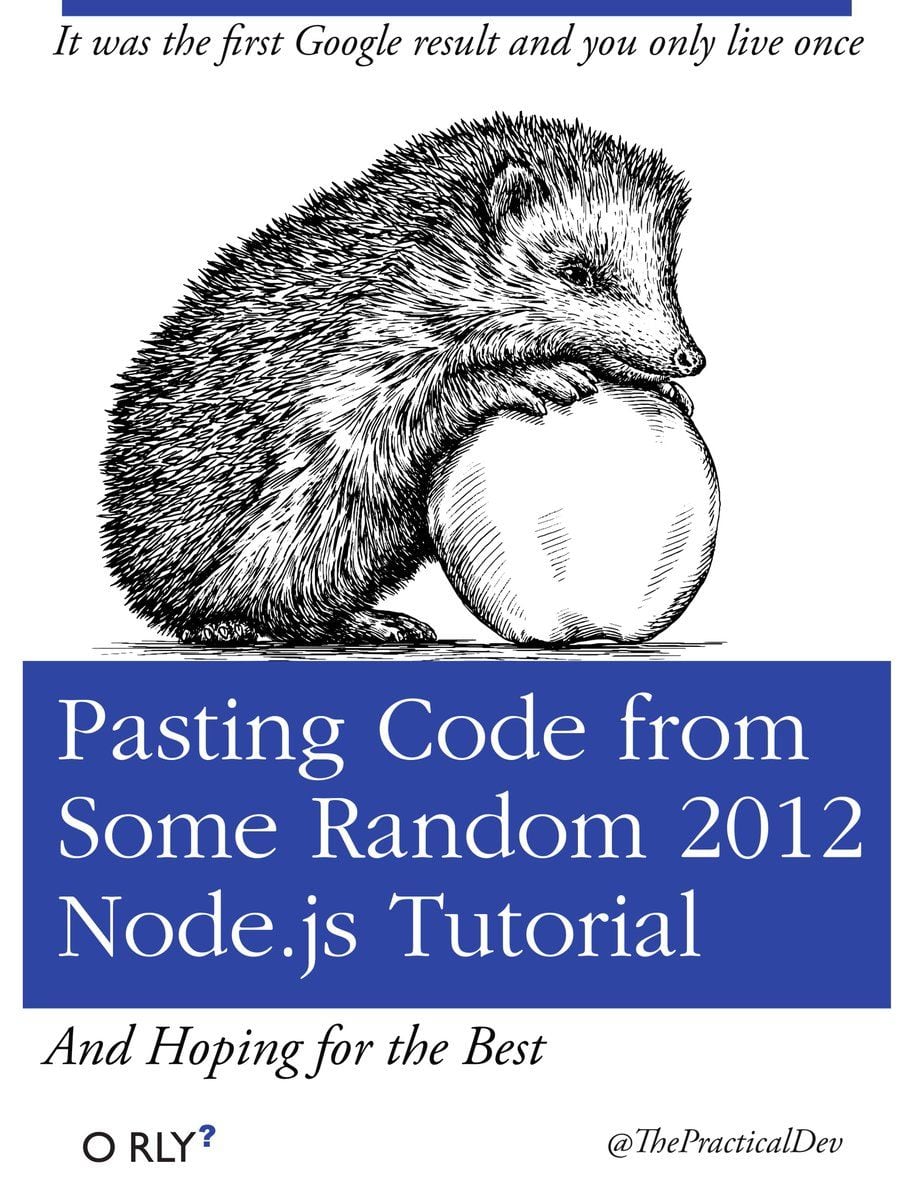
In the vibrant yet perilous digital landscape of Codeville, a bustling metropolis famed for its towering data structures and lightning-fast information highways, there emerged a practice both ancient and fraught with danger: "Pasting Code from Some Random 2012 Node.js Tutorial." This act, driven by the dual sirens of urgency and convenience, became the last resort for many a developer navigating the tight deadlines and complex requirements of their projects.
At the heart of this tale is Jordan, a developer known for their adventurous spirit and a penchant for diving headfirst into the unknown. Faced with a formidable challenge and the ticking clock of project delivery, Jordan turned to the vast expanse of the internet, seeking wisdom in the annals of past tutorials.
"It was the first Google result and you only live once," Jordan muttered to themselves, a mantra of both resignation and hope as they stumbled upon a Node.js tutorial from the halcyon days of 2012. The tutorial, a relic of a bygone era in the rapidly evolving world of web development, promised a solution that seemed to fit Jordan's needs like a key to a lock.
With a mixture of optimism and trepidation, Jordan embarked on the risky endeavor of integrating this ancient wisdom into their modern project, a process akin to fitting a square peg into a round hole. "And Hoping for the Best," they whispered, invoking the second part of their mantra as they copied and pasted the code, a digital incantation cast into the void of their text editor.
The results were as unpredictable as the winds that sweep through Codeville. At first, it seemed as though Jordan had conjured magic, the project leaping forward with newfound vitality. But as they delved deeper, the cracks began to show. Dependencies were outdated, functions deprecated, and the entire architecture of the solution was from an age before the current paradigms of Node.js development had taken shape.
Yet, Jordan was not one to back down from a challenge. Recognizing the folly of relying on outdated solutions, they embarked on a journey of adaptation and learning. Each line of code from the tutorial became a lesson, not just in Node.js, but in the critical skills of debugging, research, and the continuous evolution of technology.
As Jordan worked to modernize the ancient code, transforming it to fit the needs of their project and the standards of the day, they chronicled their journey, sharing their experiences with the community of Codeville. This narrative, "Pasting Code from Some Random 2012 Node.js Tutorial: It was the first Google result and you only live once | And Hoping for the Best," became a beacon for others, a tale of caution, perseverance, and the unyielding pursuit of knowledge.
Jordan's saga reminded the citizens of Codeville that while the past might offer inspiration, the solutions of yesterday could not always meet the challenges of today without adaptation and understanding. It underscored the importance of critical thinking, continuous learning, and the courage to venture beyond the comfort zone of the first Google result.
And so, Jordan's adventure became a legend, a story that inspired both laughter and learning, a reminder that in the ever-changing world of software development, hope and courage were as important as the code itself. In the end, Jordan's project was not just a testament to their skill as a developer but to their growth as a learner and a member of the vibrant community that is Codeville.